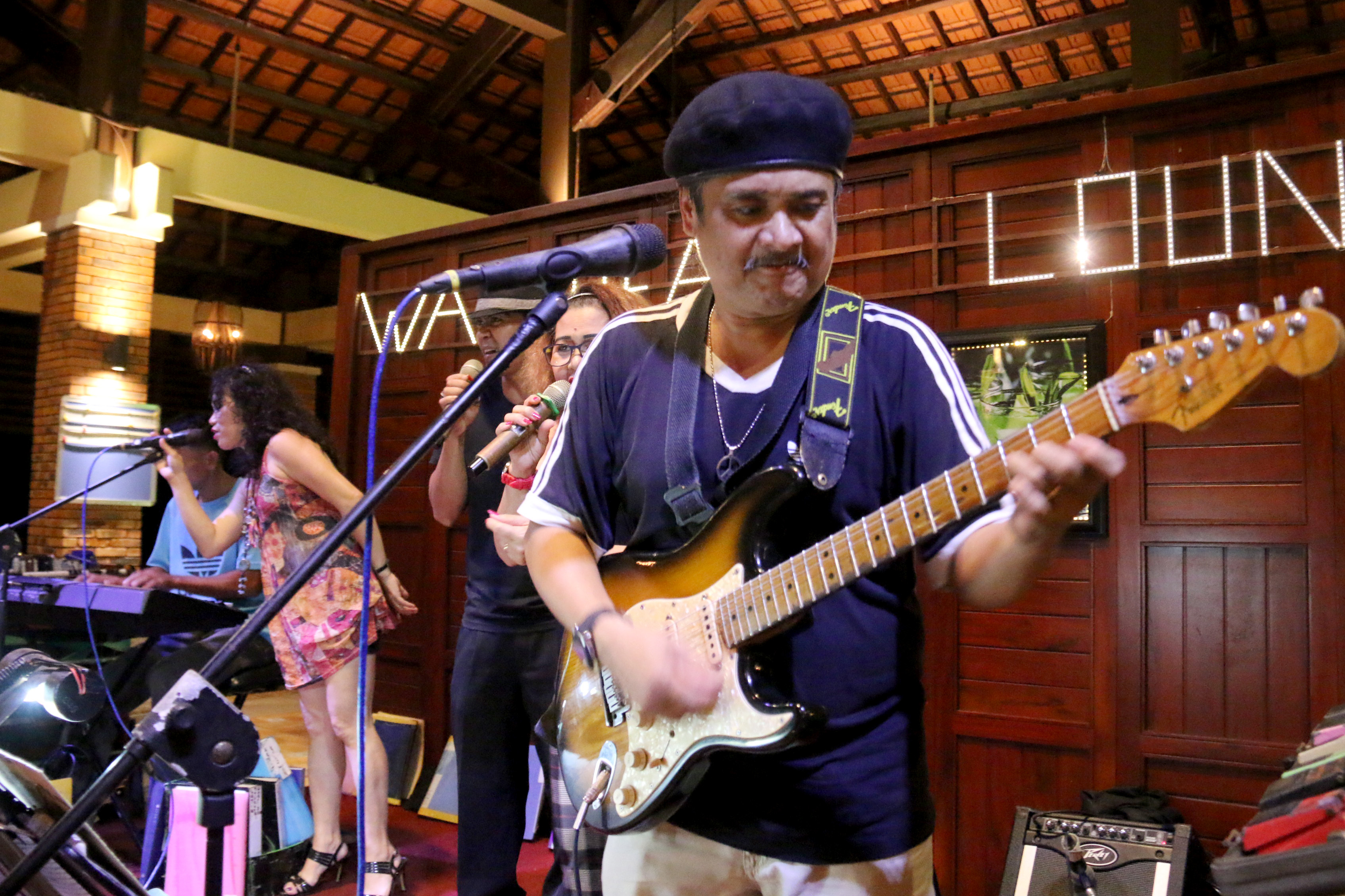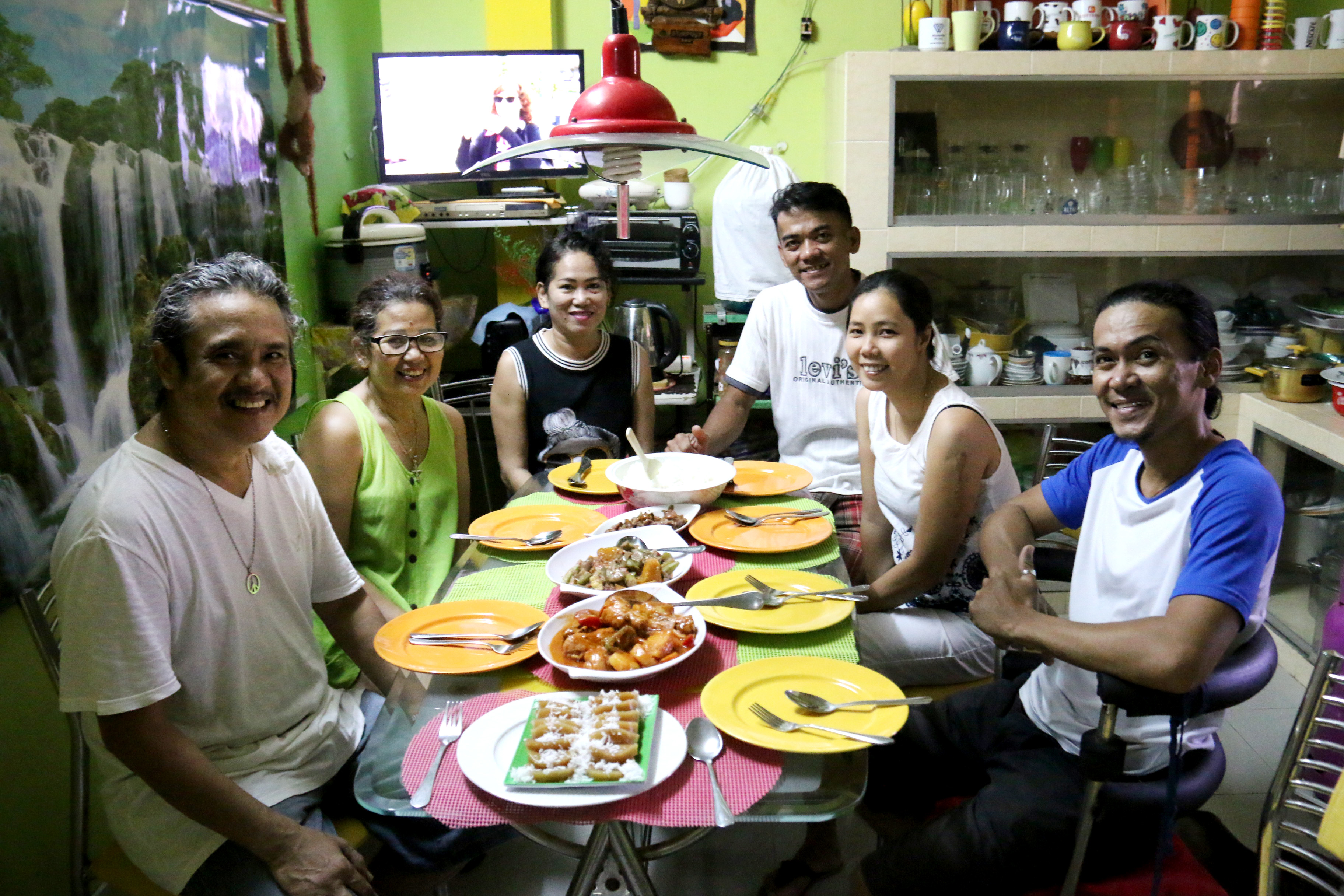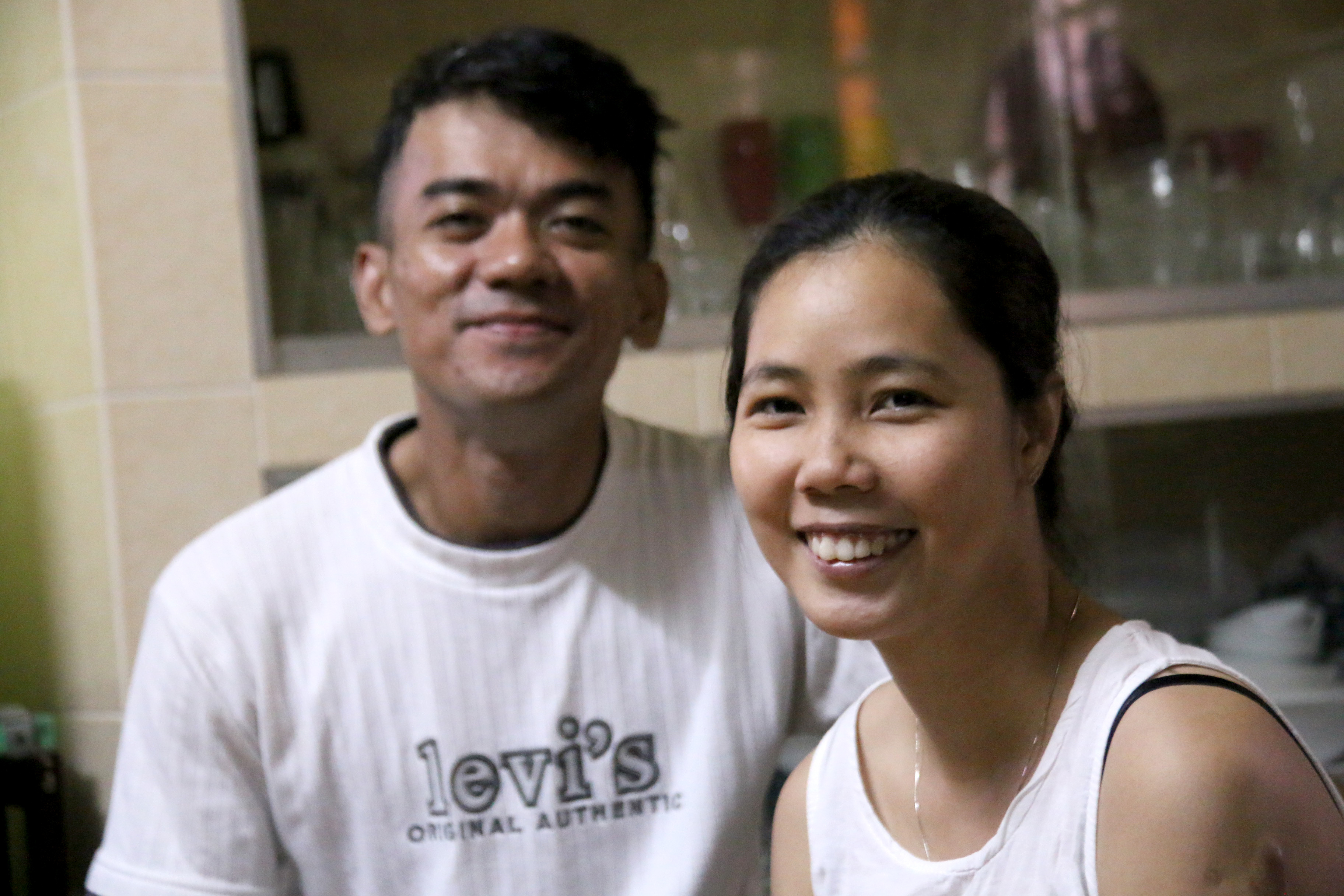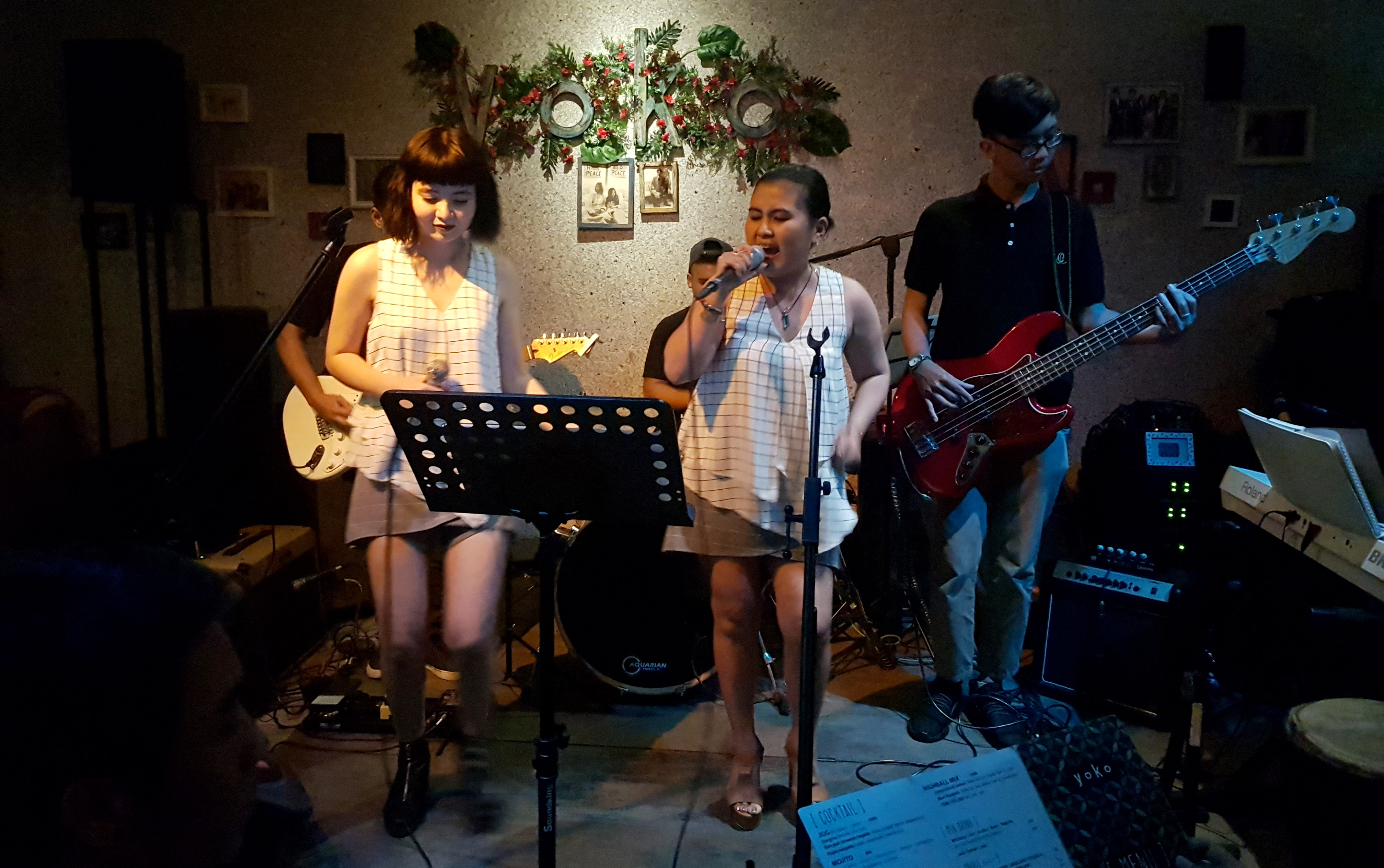At the recommendation of several Filipino singers, Tuoi Tre correspondents traveled to the south-central coastal town of Mui Ne to see Stardust, a band which has been performing at a local resort for the past 10 years, perform.
>> Filipino singers in Vietnam – P1: The beauties on stage
>> Filipino singers in Vietnam – P2: A quarter century in Vietnam
Six nights a week, Louell Yamba and his family band entertain guests at Pandanus resort with a set list comprised of western hits and well-known classics.
Louell plays guitar, drums, cajón, and saxophone while his wife Lolita, sister-in-law Zeny, and son Richard all sing.
The youngest member of the family, Ronaldo who marries a Vietnamese wife, plays keyboard and sings backup.
Every time a guest steps into the lounge, the band waves, smiles, and gently asks where they’re from and what songs they’d like to hear.
“Many European guests are surprised when we ask what they us to play, because they consider deciding songs as the singers’ job,” Louell, 59, said.
“However, they really like it and feel special when they are welcomed in such a way,” he added.
 |
| Louell Yamba (R) play bass for other members of Stardust band to sing at a gig at a resort in Mui Ne on January 29, 2018. Photo: Tuoi Tre |
To please his listeners, Louell even wrote “Welcome” and “Good Night” songs for his band to perform at the beginning and end of every gig.
Louell attributes this dedication to pleasing his audiences as a driving factor behind his 49-year singing career.
In the eighties, Louell and his wife were invited to perform overseas in Dubai, Japan, Italy, and Europe.
In 1997, the couple moved to Vietnam to perform with a band at the Saigon Prince Hotel.
Seeing the potential to lead a nice life in Vietnam, the two decided to bring their children to the country.
“This is a very nice country, everyone is friendly and everything is quite cheap so we decided to bring the whole family here,” Louell shared.
After 2004, the music scene in Saigon began to develop more vibrant as Vietnamese bands started playing foreign music, making the market more competitive.
Like many Filipino singers who decided to leave Saigon and move to other cities, Louell’s family looked for other opportunities in the country, eventually settling in Mui Ne in 2007.
 |
| Louell Yamba (L) and his family smile for a photo before having lunch in their house in Mui Ne on January 30, 2018. Photo: Tuoi Tre |
According to Louell, the magnet keeping so many Filipino singers in Vietnam is the welcome spirit cultivated by the local and community and government, both of which accept Filipinos as part of the local music scene.
“It is very kind,” he commented. “In some other countries, people tend to distance themselves, but when we’re here, everyone says ‘ok.’ That makes us feel at home.”
 |
| Ronaldo, member of Stardust band, and his Vietnamese wife smile for a photo taken by Tuoi Tre reporter at their house in Mui Ne on January 30, 2018. Photo: Tuoi Tre |
Grandchildren also sing
The Stardust band isn’t the only group made up of Lolita’s family. The talented singer also has a son living in Phu Quoc and a daughter in Saigon.
Following their family tradition, Ara Procianos and her three children perform together as the P4 band in Saigon.
 |
| P4 band is seen performing at a cafe in Ho Chi Minh City. Photo: Tuoi Tre |
Eighteen years ago, Ara’s husband, Ronie Procianos, was working for a Filipino beer company when he was sent to Vietnam on business.
After 4 months, he decided to bring his wife and kids to the country.
Ara, a professional singer who used to tour Asia, held a residency at the Caravelle hotel from 2000 to 2003 when she decided to take a break from singing to care for her family.
When her children reached about 6 years old, she began helping them learn to play instruments, instilling a passion in them.
Realizing their talent and skill, she decided to make a comeback to the stage with her family at her side. Thus, the P4 band was born.
In 2016, P4 qualified for the semi-final of the Vietnam’s Got Talent.
“The kids do not care about how much they get paid after a gig, they love music and all they want is just to play and sing for people,” the proud mother shared.
|
An “escape” of Filipino singers “In the 1980s, being invited for overseas tours was a new opportunity for many Filipino singers and musicians, but for those who left the country in 2000, it was an ‘escape’,” Louell told Tuoi Tre. The decline of the economy and political instability led many Filipinos to seek employment opportunities abroad. For Filipino performers, they had to flee if they wanted to maintain their job because the domestic payment rate was very low and opportunities were quickly dwindling. The peak period for Filipino singers making the move to Vietnam occurred from 2001 to 2002. According to Louell, instead of staying in the Philippines without a job, many chose to go overseas – their ‘passport’ was singing. |
Like us on Facebook or follow us on Twitter to get the latest news about Vietnam!


















































